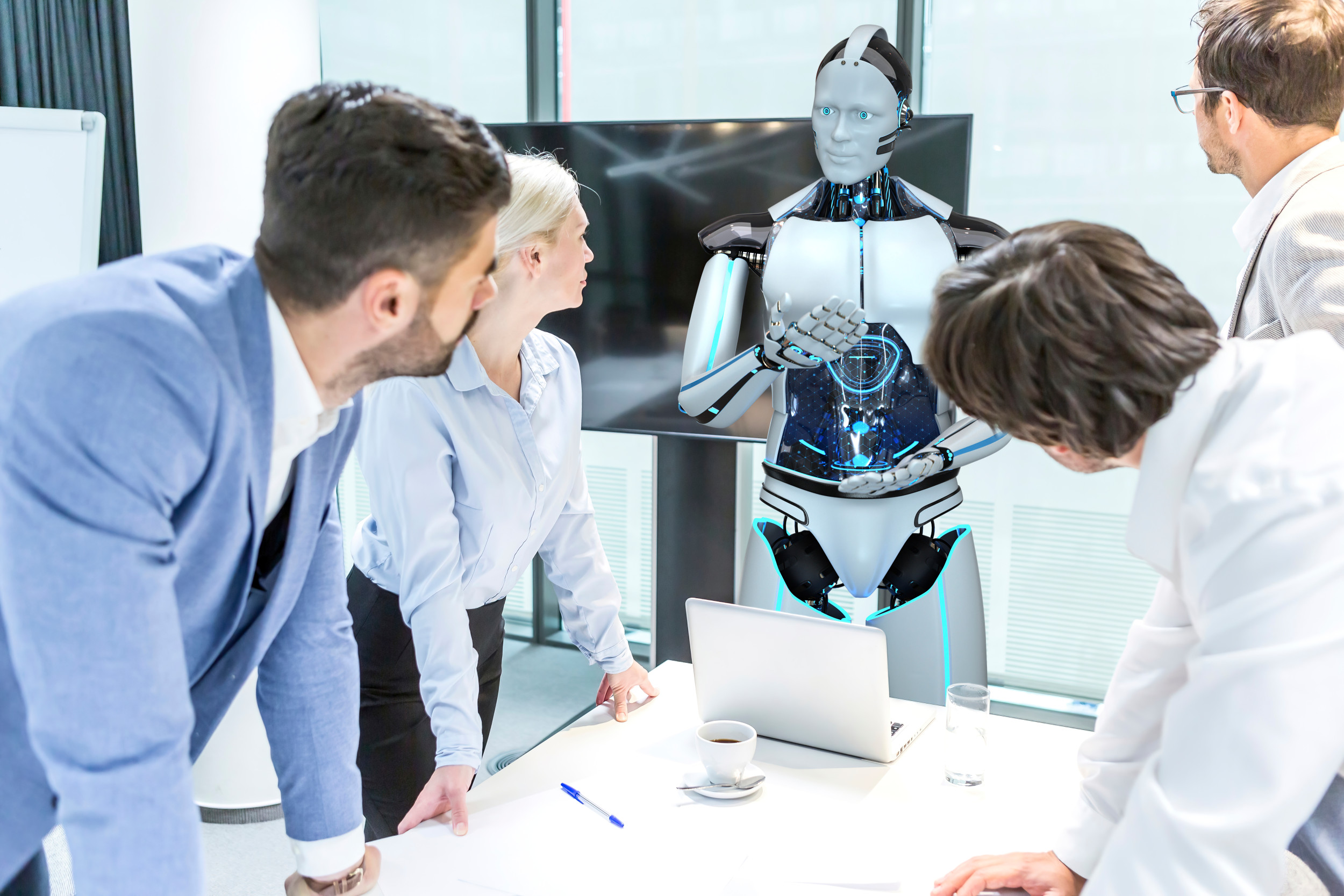
Tech company executives love mankind. In fact, they love looking into the future of mankind and innovating into it. But can they stand the people they innovate for?
Rather, can they stand people having issues with change, adaptability, embracing new technology, cooperating and pushing back via excuses, complaining, saying "Yes, but," and more? And often in a not-so-polite manner?
Technology, and more specifically AI, doesn't have those issues. It is polite, respectful and even more, "your wish is its command."
In a recent request to ChatGPT, I asked: "What are your four best qualities?"
It replied:
1. Adaptability
2. Understanding Language Differences
3. Continual Learning
4. Respectful, Polite and Inviting Approach to Requests
Not exactly most human workers' strong suits.
In an ever-evolving world where technology is advancing at a dizzying pace, one of the major debates on everyone's lips is the potential threat of artificial intelligence (AI). As AI progressively augments human abilities, it becomes an integral part of our lives, underlining every minute detail — from smart homes and autonomous vehicles to personalized recommendations and predictive analytics. Yet, the imminent threat of AI isn't necessarily its power or potential for misuse, but the widening gap in adaptability between AI and humans — a chasm driven by the impatience of tech companies, many of which express frustration with human fallibility.
There is a profound irony at the heart of the debate around AI. Tech companies and their executives are often the most vocal proponents of AI's adoption. I believe their rationale lies in the ChatGPT responses above regarding the superior adaptability, learning, responsiveness and even politeness and respectfulness of AI, qualities tech companies may find lacking in many humans.
In tech companies led by executives who are increasingly intolerant of excuses, complaining, whining, and blaming — traits all too often exhibited by human beings — AI's lack of emotional baggage or human frailties holds an alluring appeal. At their heart, do tech companies and executives care about whether people work remotely, in person or hybrid as long as they can get the results expected from them? If they do espouse a preference for one working situation or another, it is likely based on its impact on results.
AI-driven companies are pushing the boundaries of what machines can achieve. The tech industry's ventures consistently challenge the status quo, driving a wedge between humans and AI. And many of its executives often don't get why their people can't spend 24/7 at work when they do.
As these tech pioneers push AI to new frontiers, the gap between AI and humans continues to widen. This expansion occurs not due to AI's overbearing presence, but the reluctance or inability of humans to adapt at the same pace.
But is this threat truly insurmountable, or is it simply an aspect of a broader societal evolution that demands a different approach from us?
The adaptability of AI, while being its key strength, is also its greatest weakness. It can seamlessly integrate into our systems, learn from our behavior, and even mimic our actions. However, it lacks the emotional intelligence, creativity, intuition, and ethical judgment that distinguish humans. These are areas where humans excel and can coexist with AI, not as competitors, but as collaborators.
To bridge the gap, humans must focus on enhancing the traits that are uniquely human. Humans need to become more adaptable, agile learners who can collaborate with AI, making the most of the potential that AI offers, instead of viewing it as a looming threat.
Society should champion lifelong learning, resilience and adaptability, encourage creativity and critical thinking, and promote empathy and ethical conduct. By focusing on these areas, we can build a synergistic and even symbiotic relationship with AI that can lead to unprecedented growth and progress.
Tech executives, despite their impatience with the human inability to adapt, can play a crucial role in this transition. By promoting a culture that values both AI and human skills and encouraging cooperation rather than competition, they can facilitate a more harmonious integration of AI into our lives. Instead of fearing AI's growth, we should strive to foster an environment where AI and humans can complement each other's strengths and compensate for each other's weaknesses.
In conclusion, the real threat of AI isn't its potential to replace humans or its misuse. The real threat is the lack of adaptability and resilience of humans in an age where AI is rapidly evolving. To mitigate this threat, we need to empower humans with the necessary skills to work alongside AI. This doesn't mean we should aim to become more like AI, but instead, we should strive to cultivate the qualities that make us uniquely human that AI cannot replicate. The future of AI isn't about humans versus machines, but rather humans and machines working together to build a better future.








